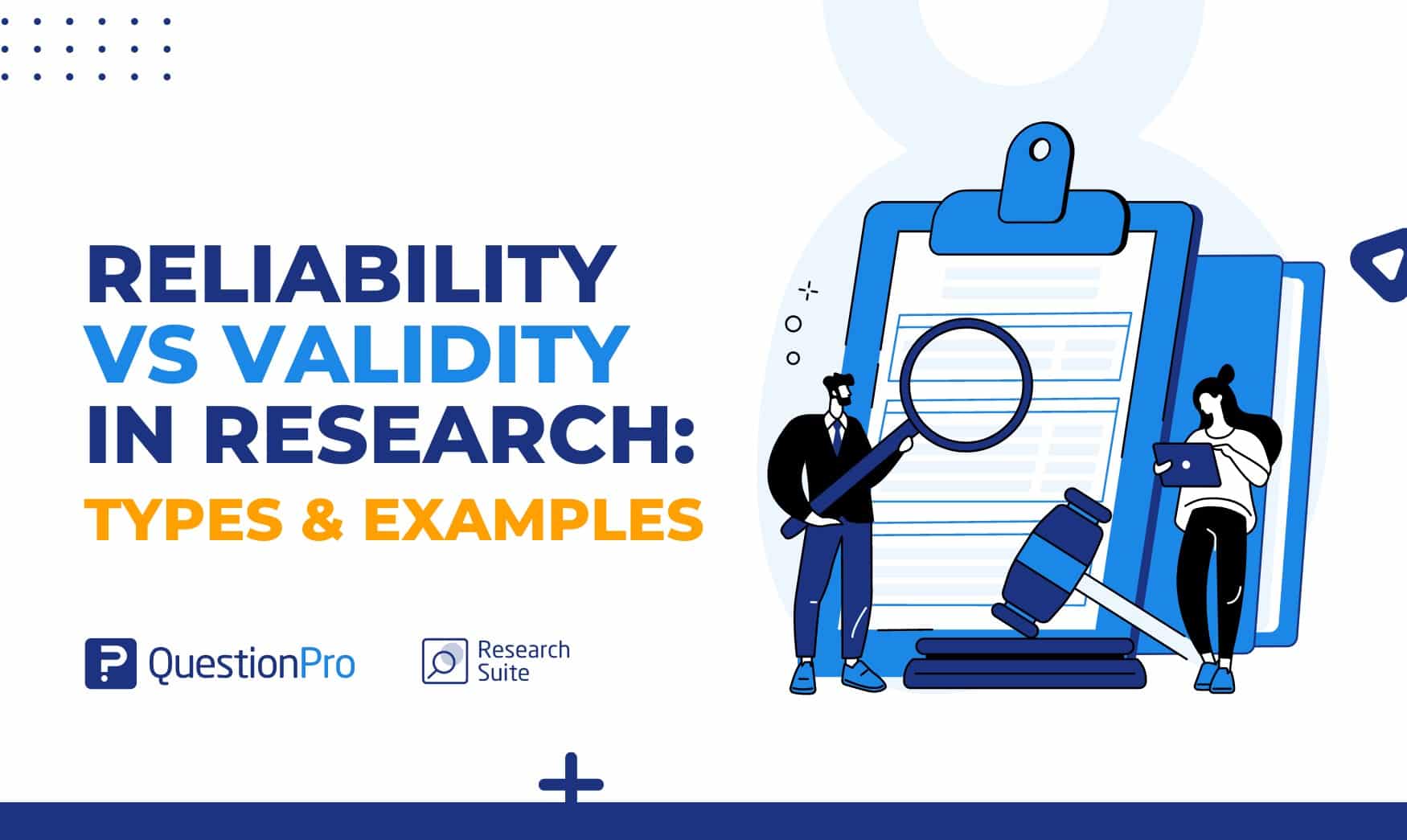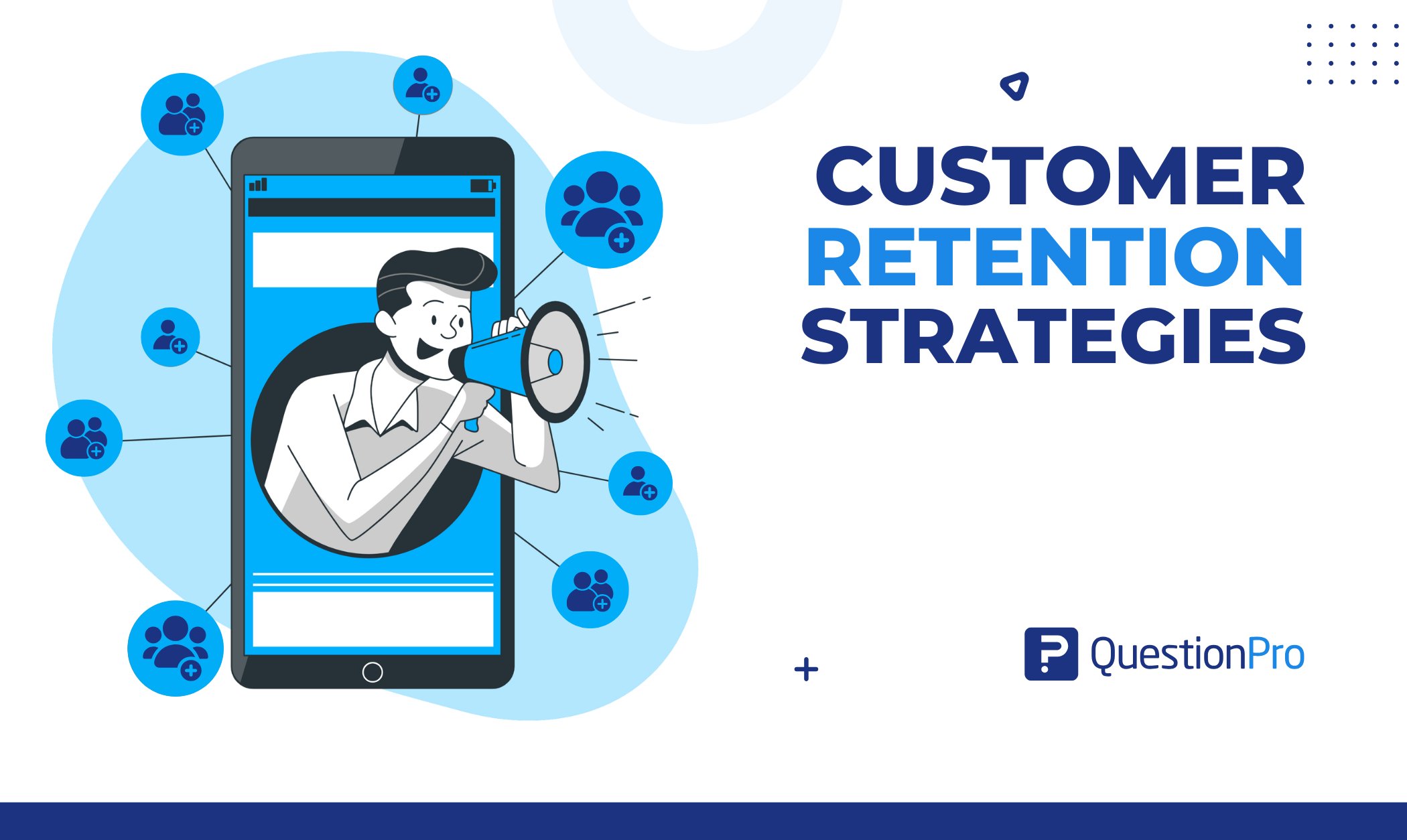
When it comes to research, getting things right is crucial. That’s where the concepts of “Reliability vs Validity in Research” come in.
Imagine it like a balancing act – making sure your measurements are consistent and accurate at the same time. This is where test-retest reliability, having different researchers check things, and keeping things consistent within your research plays a big role.
As we dive into this topic, we’ll uncover the differences between reliability and validity, see how they work together, and learn how to use them effectively.
Understanding Reliability vs. Validity in Research
When it comes to collecting data and conducting research, two crucial concepts stand out: reliability and validity.
These pillars uphold the integrity of research findings, ensuring that the data collected and the conclusions drawn are both meaningful and trustworthy. Let’s dive into the heart of the concepts, reliability, and validity, to comprehend their significance in the realm of research truly.
What is reliability?
Reliability refers to the consistency and dependability of the data collection process. It’s like having a steady hand that produces the same result each time it reaches for a task.
In the research context, reliability is all about ensuring that if you were to repeat the same study using the same reliable measurement technique, you’d end up with the same results. It’s like having multiple researchers independently conduct the same experiment and getting outcomes that align perfectly.
Imagine you’re using a thermometer to measure the temperature of the water. You have a reliable measurement if you dip the thermometer into the water multiple times and get the same reading each time. This tells you that your method and measurement technique consistently produce the same results, whether it’s you or another researcher performing the measurement.
What is validity?
On the other hand, validity refers to the accuracy and meaningfulness of your data. It’s like ensuring that the puzzle pieces you’re putting together actually form the intended picture. When you have validity, you know that your method and measurement technique are consistent and capable of producing results aligned with reality.
Think of it this way; Imagine you’re conducting a test that claims to measure a specific trait, like problem-solving ability. If the test consistently produces results that accurately reflect participants’ problem-solving skills, then the test has high validity. In this case, the test produces accurate results that truly correspond to the trait it aims to measure.
In essence, while reliability assures you that your data collection process is like a well-oiled machine producing the same results, validity steps in to ensure that these results are not only consistent but also relevantly accurate.
Together, these concepts provide researchers with the tools to conduct research that stands on a solid foundation of dependable methods and meaningful insights.
Types of Reliability
Let’s explore the various types of reliability that researchers consider to ensure their work stands on solid ground.
High test-retest reliability
Test-retest reliability involves assessing the consistency of measurements over time. It’s like taking the same measurement or test twice – once and then again after a certain period. If the results align closely, it indicates that the measurement is reliable over time. Think of it as capturing the essence of stability.
Inter-rater reliability
When multiple researchers or observers are part of the equation, interrater reliability comes into play. This type of reliability assesses the level of agreement between different observers when evaluating the same phenomenon. It’s like ensuring that different pairs of eyes perceive things in a similar way.
Internal reliability
Internal consistency dives into the harmony among different items within a measurement tool aiming to assess the same concept. This often comes into play in surveys or questionnaires, where participants respond to various items related to a single construct. If the responses to these items consistently reflect the same underlying concept, the measurement is said to have high internal consistency.
Types of validity
Let’s explore the various types of validity that researchers consider to ensure their work stands on solid ground.
Content validity
It delves into whether a measurement truly captures all dimensions of the concept it intends to measure. It’s about making sure your measurement tool covers all relevant aspects comprehensively.
Imagine designing a test to assess students’ understanding of a history chapter. It exhibits high content validity if the test includes questions about key events, dates, and causes. However, if it focuses solely on dates and omits causation, its content validity might be questionable.
Construct validity
It assesses how well a measurement aligns with established theories and concepts. It’s like ensuring that your measurement is a true representation of the abstract construct you’re trying to capture.
Criterion validity
Criterion validity examines how well your measurement corresponds to other established measurements of the same concept. It’s about making sure your measurement accurately predicts or correlates with external criteria.
Differences between reliability and validity in research
Let’s delve into the differences between reliability and validity in research.
| No | Category | Reliability | Validity |
| 01 | Meaning | Focuses on the consistency of measurements over time and conditions. | Concerns about the accuracy and relevance of measurements in capturing the intended concept. |
| 02 | What it assesses | Assesses whether the same results can be obtained consistently from repeated measurements. | Assesses whether measurements truly measure what they are intended to measure. |
| 03 | Assessment methods | Evaluated through test-retest consistency, interrater agreement, and internal consistency. | Assessed through content coverage, construct alignment, and criterion correlation. |
| 04 | Interrelation | A measurement can be reliable (consistent) without being valid (accurate). | A valid measurement is typically reliable, but high reliability doesn’t guarantee validity. |
| 05 | Importance | Ensures data consistency and replicability | Guarantees meaningful and credible results. |
| 06 | Focus | Focuses on the stability and consistency of measurement outcomes. | Focuses on the meaningfulness and accuracy of measurement outcomes. |
| 07 | Outcome | Reproducibility of measurements is the key outcome. | Meaningful and accurate measurement outcomes are the primary goal. |
While both reliability and validity contribute to trustworthy research, they address distinct aspects. Reliability ensures consistent results, while validity ensures accurate and relevant results that reflect the true nature of the measured concept.
Example of Reliability and Validity in Research
In this section, we’ll explore instances that highlight the differences between reliability and validity and how they play a crucial role in ensuring the credibility of research findings.
Example of reliability
Imagine you are studying the reliability of a smartphone’s battery life measurement. To collect data, you fully charge the phone and measure the battery life three times in the same controlled environment—same apps running, same brightness level, and same usage patterns.
If the measurements consistently show a similar battery life duration each time you repeat the test, it indicates that your measurement method is reliable. The consistent results under the same conditions assure you that the battery life measurement can be trusted to provide dependable information about the phone’s performance.
Example of validity
Researchers collect data from a group of participants in a study aiming to assess the validity of a newly developed stress questionnaire. To ensure validity, they compare the scores obtained from the stress questionnaire with the participants’ actual stress levels measured using physiological indicators such as heart rate variability and cortisol levels.
If participants’ scores correlate strongly with their physiological stress levels, the questionnaire is valid. This means the questionnaire accurately measures participants’ stress levels, and its results correspond to real variations in their physiological responses to stress.
Validity assessed through the correlation between questionnaire scores and physiological measures ensures that the questionnaire is effectively measuring what it claims to measure participants’ stress levels.
Conclusion
In the world of research, differentiating between reliability and validity is crucial. Reliability ensures consistent results, while validity confirms accurate measurements. Using tools like QuestionPro enhances data collection for both reliability and validity. For instance, measuring self-esteem over time showcases reliability, and aligning questions with theories demonstrates validity.
QuestionPro empowers researchers to achieve reliable and valid results through its robust features, facilitating credible research outcomes. Contact QuestionPro to create a free account or learn more!







